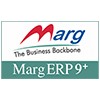Description

Nutritics

Yelo
Comprehensive Overview: Nutritics vs Yelo
Nutritics and Yelo are distinct entities with different focuses and products. Here's a comprehensive overview of each:
Nutritics:
a) Primary Functions and Target Markets:
- Primary Functions: Nutritics is a software platform that provides nutrition analysis, recipe management, meal planning, and labeling solutions. It is designed to help professionals efficiently manage nutritional data and compliance with labeling regulations.
- Target Markets: Nutritics primarily targets dietitians, nutritionists, foodservice operators, healthcare providers, and educators. It also serves the food manufacturing sector for labeling and regulatory compliance purposes.
b) Market Share and User Base:
- Nutritics is recognized in its niche market, largely due to its comprehensive database and user-friendly interface. Its market share and user base are primarily within the healthcare and foodservice industries in Europe and a few other regions. The specific market share in terms of global nutrition software users is not widely published, but it is established in countries with stringent nutrition labeling regulations.
c) Key Differentiating Factors:
- Extensive and accurate food composition databases.
- Strong focus on compliance with international food labeling regulations.
- Capability to integrate with other food safety and management software systems.
- Customizable solutions tailored to specific industry needs.
Yelo:
a) Primary Functions and Target Markets:
- Primary Functions: Yelo is primarily a delivery management and logistics platform that assists businesses in managing deliveries, optimizing routes, and tracking shipments in real-time.
- Target Markets: Yelo targets e-commerce, retail, logistics, and food delivery businesses aiming to enhance their delivery operations and improve customer experiences.
b) Market Share and User Base:
- Yelo has carved its niche in the logistics and delivery management software market. Its user base consists of small to mid-sized enterprises looking for efficient and cost-effective delivery solutions. While specific market share statistics are not prolific, Yelo competes with various other delivery management software providers through its offerings.
c) Key Differentiating Factors:
- Focus on optimizing delivery routes to reduce fuel costs and improve efficiency.
- Real-time tracking and customer communication features.
- Adaptable to businesses of different sizes, providing scalable solutions.
- Integration capabilities with existing e-commerce and point-of-sale systems.
Comparative Analysis:
- Functionality: Nutritics focuses on nutrition and compliance solutions, while Yelo is centered on delivery management and logistics.
- Target Markets: Nutritics serves healthcare and food industry professionals, whereas Yelo targets e-commerce and logistics businesses.
- Technology Use: Both companies offer SaaS-based platforms, but Nutritics emphasizes data analytics for nutrition, while Yelo specializes in logistics optimization and delivery tracking.
Both Nutritics and Yelo cater to specific business needs and are recognized in their respective fields for leveraging technology to solve industry-specific challenges.
Contact Info

Year founded :
2013
+353 1 699 4302
Not Available
Ireland
http://www.linkedin.com/company/nutritics

Year founded :
Not Available
Not Available
Not Available
Not Available
Not Available
Feature Similarity Breakdown: Nutritics, Yelo
To provide a feature similarity breakdown for Nutritics and Yelo, we must first understand what each product specializes in. Nutritics is primarily a nutrition analysis software used in various industries like healthcare, education, sports, and food services to analyze food content and create meal plans. Yelo, in contrast, is a platform designed for building marketplace solutions, covering aspects like delivery, appointment, and booking services, among others.
Here's the feature similarity breakdown:
a) Core Features in Common:
- Data Analytics: Both platforms rely on strong data analytics capabilities. Nutritics analyzes nutritional data, while Yelo analyzes user data and operations metrics for its marketplaces.
- Customizable Reporting: Both offer customizable reports—Nutritics for nutritional evaluations and Yelo for business operations and marketplace metrics.
- User Management: Each provides user account management features, enabling user profile creation, access controls, and customer interaction tracking.
- Integration Capabilities: They both support integrations with other systems and applications, enhancing the functionality of their respective services.
b) User Interface Comparison:
- Nutritics: The user interface is designed for precision and professional use in nutrition science and meal planning. It often includes detailed databases, graphs, and charts for comprehensive analysis.
- Yelo: Yelo's UI is more about ease of navigation and functionality for marketplace operations. It tends to be more diverse, adaptable to different business models (e.g., delivery, booking) with a focus on smooth customer journeys and business management dashboards.
c) Unique Features:
- Nutritics:
- Comprehensive Nutritional Database: Boasts an extensive nutritional database that includes detailed information on a wide range of food items, crucial for in-depth nutrition analysis.
- Meal Planning Tools: Advanced tools for dietitians and health professionals to create and manage meal plans.
- Regulatory Compliance Features: Special features to ensure compliance with food labeling laws and health standards.
- Yelo:
- Multi-Niche Capabilities: Yelo allows businesses to create various types of marketplaces—delivery, home services, rentals, etc.—making it versatile for different business needs.
- White-Label Solutions: Enables businesses to fully brand their marketplace platform without a Yelo signature, allowing for a tailored brand experience.
- Hyperlocal Integration: Optimized for local search and delivery logistics, focusing on hyperlocal market businesses.
While Nutritics and Yelo serve distinct industries with specialized needs, their commonalities in analytics, reporting, and user management underscore the importance of data-driven decision-making across disparate sectors. Their unique features emphasize their focus—nutrition science for Nutritics and marketplace versatility for Yelo.
Features

Not Available

Not Available
Best Fit Use Cases: Nutritics, Yelo
Both Nutritics and Yelo are specialized tools, each serving distinct needs and industries. Here's how they are best utilized in different contexts:
a) Nutritics:
Best Fit Use Cases:
- Nutrition and Dietetics Services: Nutritics is highly suitable for dietitians, nutritionists, and healthcare professionals who need detailed nutritional analysis and dietary planning tools.
- Food Service and Hospitality: Restaurants, cafes, and hotels can use Nutritics to analyze menus, ensuring that dietary needs and nutritional information are accurately presented to customers.
- Sports and Fitness Organizations: Sports teams, gyms, and fitness centers can leverage Nutritics to create tailored nutrition plans for athletes or clients focused on performance and health.
- Catering and Food Production: Companies involved in food production and catering can benefit from its ability to manage recipe standardization and maintain compliance with nutritional standards.
Industry Verticals and Company Sizes:
- Healthcare and Wellness: Hospitals, clinics, and wellness centers can use Nutritics for patient care and meal planning.
- Small to Medium Enterprises (SMEs): Particularly those in the food production and services sectors that require detailed nutritional analysis but might not have the scale for larger, more cumbersome systems.
b) Yelo:
Best Fit Use Cases:
- Marketplace Businesses: Yelo is ideal for businesses looking to create an online marketplace – this could include everything from a local delivery service to a large-scale ecommerce platform.
- On-Demand Services: Companies offering on-demand services (like food delivery, grocery delivery, and home services) can utilize Yelo’s white-label solutions to quickly establish a robust online presence.
- Niche E-commerce Platforms: Entrepreneurs and small businesses wishing to create tailored, niche-focused e-commerce sites without starting from scratch.
Industry Verticals and Company Sizes:
- Start-ups and Entrepreneurs: Especially those looking to enter the on-demand service market quickly and effectively.
- Small to Medium Enterprises (SMEs): Yelo caters well to SMEs wanting to expand their traditional business model into an online platform, particularly in the retail and service sectors.
- Delivery and Logistics: Companies focused on extending their logistics capabilities through delivery services find Yelo's technology beneficial.
d) How do these products cater to different industry verticals or company sizes?
-
Nutritics is more vertically integrated into industries focused on nutrition and food sciences, such as healthcare, hospitality, and food production. It's scalable enough for both individual practitioners and larger institutions, providing comprehensive nutritional data management suited to the scale and complexity of operations in these verticals.
-
Yelo excels in horizontal scaling across diverse applications for online marketplaces and on-demand services, accommodating a wide variety of industries like retail, logistics, and services. It’s particularly tailored for start-ups and SMEs due to its ease of set-up and flexibility, making it easier for smaller companies to enter the digital marketplace efficiently.
Both tools showcase versatility within their niches by providing robust solutions tailored to the specific demands and operational scales of the businesses that use them.
Pricing

Pricing Not Available

Pricing Not Available
Metrics History
Metrics History
Comparing teamSize across companies
Conclusion & Final Verdict: Nutritics vs Yelo
To provide a conclusion and final verdict for Nutritics and Yelo, it's essential to evaluate both products based on different factors such as features, pricing, customer support, ease of use, and suitability for intended purposes.
a) Considering all factors, which product offers the best overall value?
Nutritics tends to offer the best overall value, especially for users focused on nutrition analysis and food-related research. Its comprehensive database, detailed nutritional breakdowns, and analytics tools are robust for clinical, educational, and food service settings. However, the choice between Nutritics and Yelo depends on the specific needs of the user.
b) Pros and Cons of each product
Nutritics:
-
Pros:
- Comprehensive nutrient database: Extensive library with detailed nutritional data.
- In-depth reporting and analytics: Suitable for in-depth food labeling and health assessments.
- Versatility: Can be utilized in various fields, including health, fitness, food services, and academia.
- User-friendly interface: Easy to navigate for both beginners and advanced users.
-
Cons:
- Potentially higher cost: Premium features and extensive data might come at a higher subscription cost.
- Specialized focus: Best for those specifically needing detailed nutritional insights, which might be overkill for general users.
Yelo:
-
Pros:
- Simplified features: May offer straightforward functionality for specific user needs.
- Cost-effective: Often more affordable if users don't require advanced analytics.
- Versatile applications: Might include features beneficial for a broader range of applications outside strict nutrition analysis.
-
Cons:
- Limited nutritional database: May not provide as robust nutritional detail as Nutritics.
- Basic reporting: Might lack some advanced features and analytics, limiting usability for detailed nutrition professionals.
c) Recommendations for Users
-
Choose Nutritics if:
- You need an in-depth nutritional analysis tool for professional or educational purposes.
- Your work involves food service, clinical assessments, or meticulous dietary planning and labeling.
- You require advanced reporting tools and vast data resources.
-
Choose Yelo if:
- You are looking for a more general tool that doesn’t require exhaustive nutritional details.
- Budget constraints are a primary concern, and you want a more affordable solution.
- Your focus is not exclusively on nutrition, but you would benefit from broader application features.
In conclusion, the decision between Nutritics and Yelo should be based on the specific needs, budget, and intended application of the user. Nutritics is likely the preferred choice for professionals needing comprehensive nutritional data and analytics, while Yelo may be more suited for those seeking basic features at a lower cost.
Add to compare
Add similar companies



